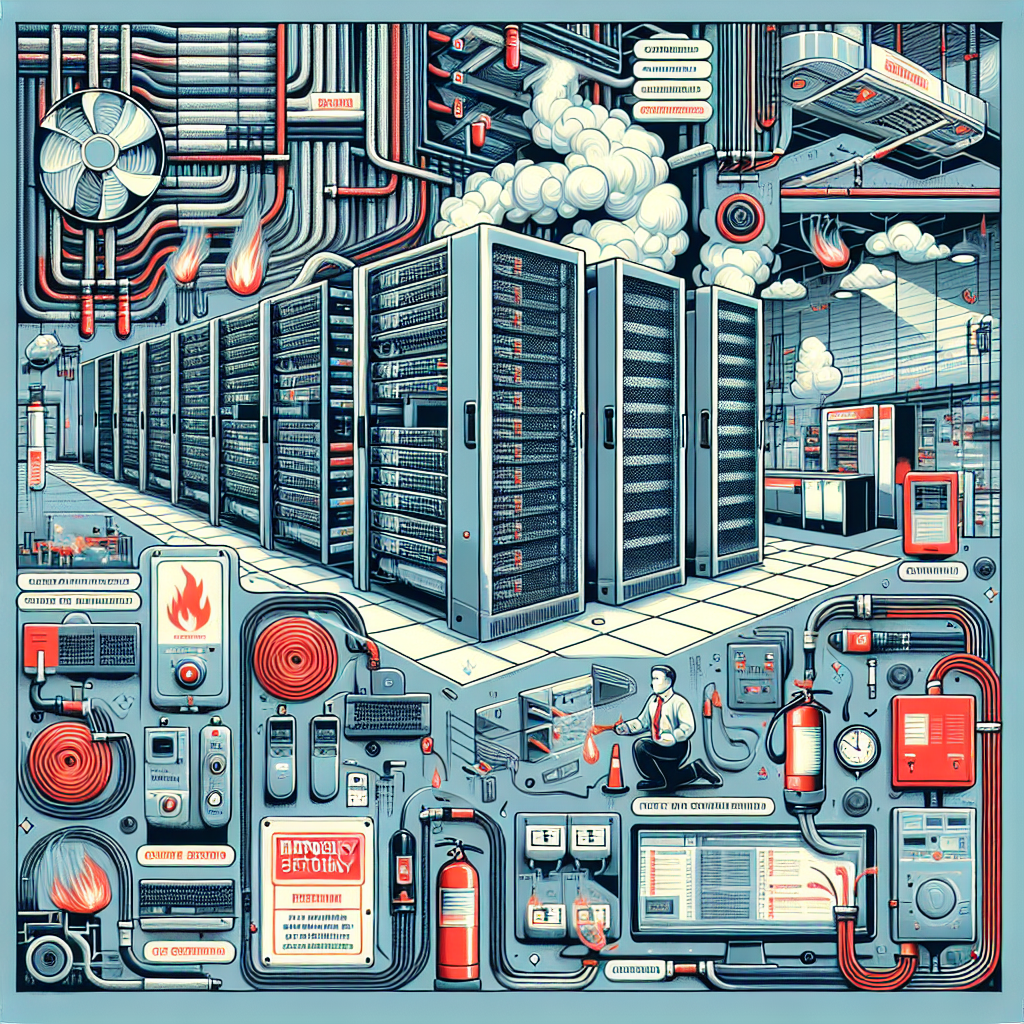Your cart is currently empty!
Fire Suppression Strategies for Protecting Data Centers from Disaster

Data centers are the nerve centers of modern businesses, housing critical information and infrastructure that are essential for daily operations. However, these facilities are also at high risk of fires, which can lead to devastating consequences if not properly managed. Therefore, it is crucial for data center operators to implement effective fire suppression strategies to protect their valuable assets and ensure business continuity.
One of the key considerations when designing a fire suppression system for a data center is the type of equipment and materials housed within the facility. Data centers typically contain a wide range of sensitive electronic equipment that can be easily damaged by water or chemicals used in traditional fire suppression systems. Therefore, it is important to choose a suppression system that is specifically designed to protect these assets without causing additional harm.
One common fire suppression strategy used in data centers is the use of clean agent systems, such as FM-200 or Novec 1230. These systems work by releasing a gas-based agent that quickly extinguishes the fire without leaving behind any residue or causing damage to equipment. Clean agent systems are preferred for data centers because they are effective in suppressing fires quickly, minimizing downtime and reducing the risk of data loss.
Another important consideration when designing a fire suppression system for a data center is the layout and design of the facility. Data centers are typically large, open spaces with racks of equipment arranged in rows. This layout can make it challenging for traditional fire suppression systems to effectively reach all areas of the facility. To address this issue, data center operators should consider using a combination of spot detectors and localized suppression systems to ensure that fires are detected and extinguished quickly in all areas of the facility.
In addition to implementing a robust fire suppression system, data center operators should also have a comprehensive emergency response plan in place to effectively manage a fire incident. This plan should include procedures for evacuating personnel, contacting emergency services, and coordinating with fire suppression system vendors to ensure a quick and effective response to a fire emergency.
Overall, fire suppression strategies are essential for protecting data centers from disaster and ensuring business continuity. By implementing a combination of clean agent suppression systems, spot detectors, and localized suppression systems, data center operators can effectively mitigate the risks associated with fires and safeguard their valuable assets. Additionally, having a comprehensive emergency response plan in place will help ensure a swift and coordinated response to any fire incidents that may occur.

Leave a Reply